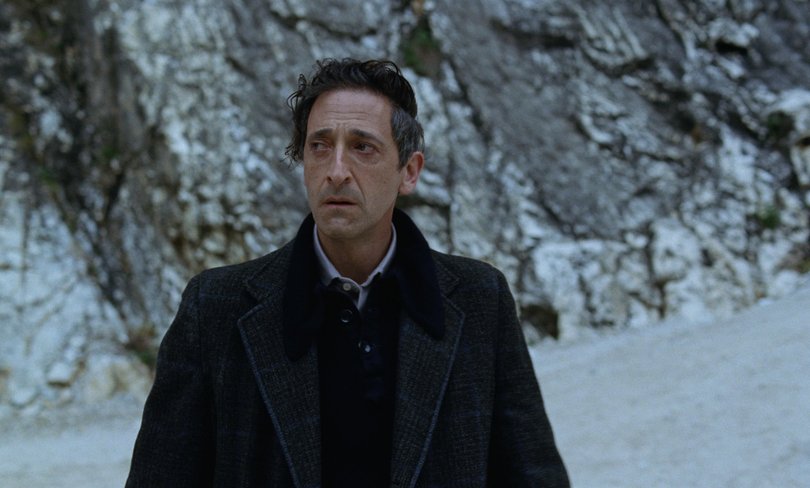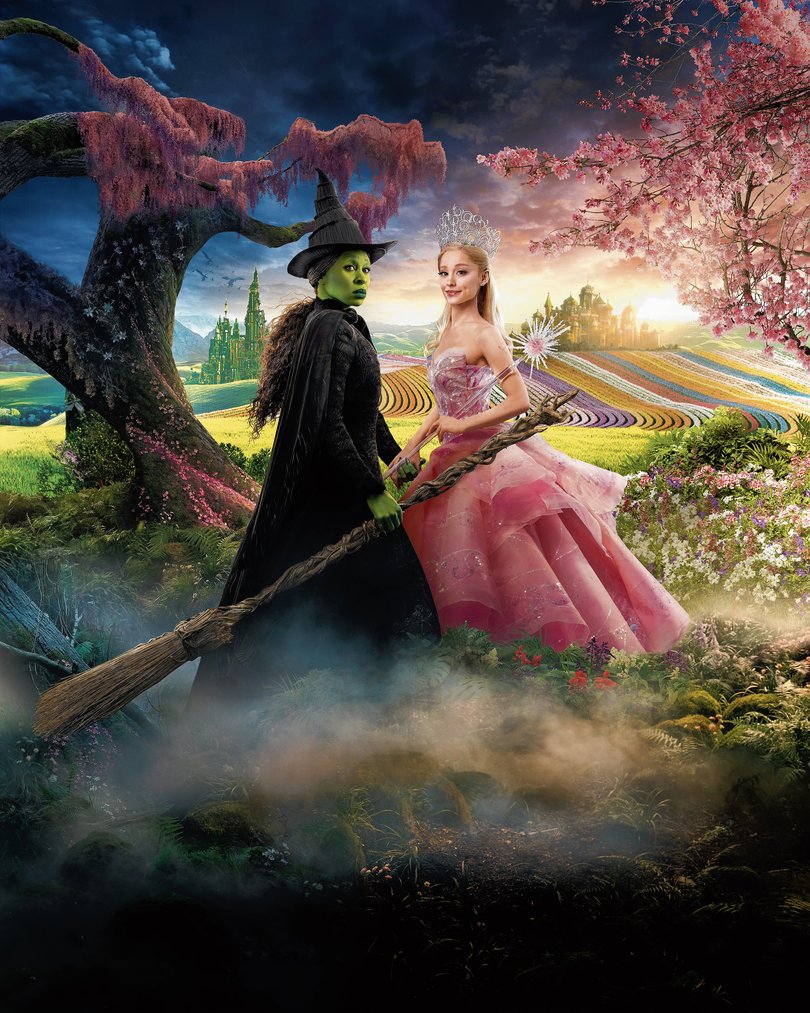Emilia Perez, Wicked and The Brutalist: The 2025 Oscar nominees are very political and anti-Trump
This year’s Oscar winners will be chosen from a very political crop of nominees.

There has long been a perception that Hollywood is aligned with progressive values, and that’s not going to change with this year’s Oscar-nominated films.
Perhaps it was the spectre of a second Trump administration being sworn in three days after the nominations voting period closed that spurred voters to endorse a clutch of projects with political perspectives that are oppositional to the current US government.
Or perhaps it’s the increasing internationalisation of its voting body or just that an industry of artists makes for awkward bedfellows with right-wing movements, even if Ronald Reagan hailed from there.
Sign up to The Nightly's newsletters.
Get the first look at the digital newspaper, curated daily stories and breaking headlines delivered to your inbox.
By continuing you agree to our Terms and Privacy Policy.Donald Trump spent his first day back in office targeting transgender people, immigrants, diversity initiatives and international cooperation. It’s no coincidence that most of the more nominated films have, at their core, empathetic and humanist stories about exactly those topics.
The leading contender, Emilia Perez, with its record-breaking 13 nominations (the highest ever for a non-English language film) is the tale of a transgender woman and former Mexican cartel leader.
Its lead, Karla Sofia Gascon, is the first out transgender person to ever be nominated for an acting Oscar while co-star Zoe Saldana, an American with Dominican and Puerto Rican heritage, is considered a lock to win best supporting actress.

The film is in Spanish, largely set in Mexico and was made by Frenchman Jacques Audiard.
Now, the French-ness of its production is one of the criticisms of the film, that it is not culturally authentic because it was financed in France, filmed in France and made by a predominantly French crew with only one Mexican actor, Adriana Paz, in its main cast.
The film has also been stung by some members of the LGBTQI community for what they say is a regressive depiction of the transgender experience, although that would deny Gascon’s agency in the project.
If Emilia Perez emerges as the big winner of the night, it could be seen as a direct refutation of Trump’s policies against the transgender community. The voting period for the final results begins on February 11.
The Brutalist may be a grand, sweeping historical epic that evokes old-fashioned filmmaking ambitions (it was shot on 70mm VistaVision), but it has at its heart an immigrant story in which a Hungarian Holocaust survivor and architect contends with his new home in America only to find it cold and contemptuous of his humanity, no matter his talents.
It also explores the relationship between the artist and a wealthy patron, an industrialist whose whims come first because he controls the capital. There are parallels between that moneyed character and the fact the Trump inner circle features 13 billionaires including the world’s richest man.

The Brutalist is not exactly a warm and fuzzy view of men that belong to the same financial elite.
When Wicked won the nonsense Golden Globes award for Cinematic and Box Office Achievement, its director, Jon M. Chu, accepted the gong and gave an impassioned speech that referenced “pessimism and cynicism” ruling the planet and that art, i.e. his film, can be a “radical act of optimism, that is empowerment and that is joy”.
Chu said that perhaps we all have a little bit of Elphaba, Wicked’s hero, inside us and that we should not give up but have the courage to “rise up”.
In Wicked, which has 10 Oscar nominations, she ends up realising that the much-vaunted Wizard is a charlatan showman who, in the closing moments of the film, weaponises Elphaba’s difference to cast her as a figure to fear, using division to consolidate his undeserved power.
The film is nowhere as sharp and politically scathing as Gregory Maguire’s 1995 book, which is a potent allegory for fascism, but even its fairy floss and accessible perspective on propaganda, political manipulation and disinformation is hard to ignore.

That’s just the three films with the most nominations. Up and down that list are films with strong political perspectives.
I’m Still Here, nominated for best picture, lead actress and international feature, is a Brazilian movie based on the real-life disappearance of dissident Rubens Paiva, a victim of Brazil’s murderous military dictatorship. Jair Bolsonaro, the former far-right president and Trump ally, is a big fan of that brutal regime.
Dune: Part Two has as one of its themes the dangers of a false messiah and how these myths are created, seeded and used to manipulate populations, Sing Sing is about finding humanity in a flawed prison industrial complex, vampire horror Nosferatu has a strong strain about consent, and The Substance is a female-led story about the impossible beauty standards levelled at women.
Even Conclave, a pulpy thriller about a papal election is deeply political. Aside from the fact it’s about the ins-and-outs of the manoeuvring and backstabbing of an election process, its villain is a conservative, Islamophobic cardinal who rails against religious plurality and acceptance of different cultures. It also has a twist ending, which we won’t spoil here, that is not aligned with Trump’s social values.

The most scathing rebuke that will likely set Trump off is two nominations for The Apprentice, including a surprise one for Sebastian Stan in best actor.
The Apprentice is the dramatisation of a young Trump coming up under the tutelage of lawyer Roy Cohn. Controversially, there is a scene in the film which depicts Trump raping his then-wife Ivana, a claim that she made during a 1989 divorce deposition, and which she retracted in 2015.
Trump denounced the film when it premiered at the Cannes Film Festival in May and threatened legal action. The Apprentice struggled to secure American distribution and Stan revealed that no other actor would team up with him for awards season promotional staples such as the actor-on-actor chats.
That The Apprentice will now be represented at the Oscars is a vindication of that team’s efforts and Stan and Jeremy Strong’s performances.
If America is lurching to the right, this year’s Oscars movies are trying to be a buffer against those forces.

